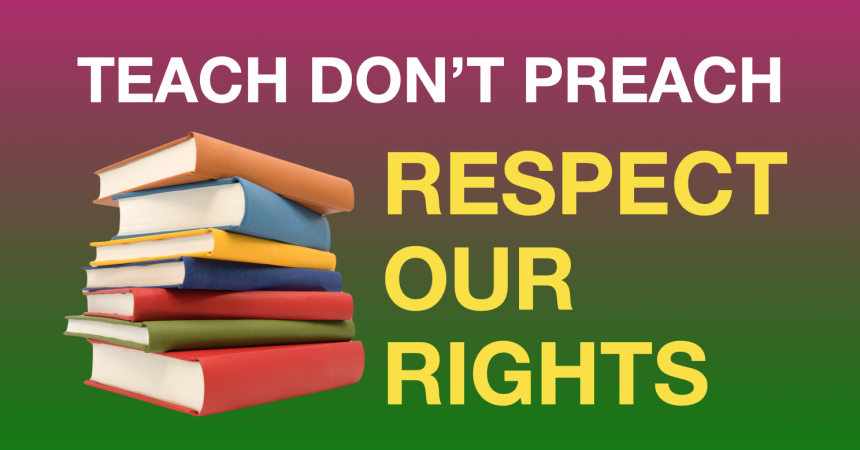
Supreme Court judgement from 1998 supports the right to opt out of the NCCA religion course
The Minister for Education, Joe McHugh, and the Department of Education, have recently been undermining the right to opt out of the NCCA religion course in ETB schools.
They are basing their argument on a distinction between what they call ‘religious instruction’ and ‘religious education.’
But Atheist Ireland has obtained copies of a Supreme Court judgement from 1998, which makes precisely the opposite distinction between these two concepts.
This judgement supports the argument made by Atheist Ireland that you can legally opt out of any class that teaches religion, regardless of its name or content.
The Minister and the Department make the following arguments:
- That ‘religious instruction’ means the teaching of religion in accordance with the requirements of one denomination.
- That ‘religious education’ means the teaching of the NCCA course in religion, which teaches about many religions, without ‘religious instruction’.
- Because of this, the right to opt out of ‘religious education’ in the NCCA course ‘does not arise.’
However, the Supreme Court concluded the exact opposite in 1998, in the judgement of the case Campaign to Separate Church and State versus the Minister for Education and several Catholic Bishops.
That case was about whether the State paying chaplains was an endowment of religion. The Court found that it was not an endowment. But the judgement also addressed the distinction between ‘religious instruction’ and ‘religious education’.
In the Supreme Court judgement, Justice Barrington said:
“The Constitution therefore distinguishes between religious ‘education’ and religious ‘instruction’ — the former being the much wider term.
A child who attends a school run by a religious denomination different from his own may have a Constitutional right not to attend religious instruction at that school, but the Constitution cannot protect him from being influenced, to some degree, by the religious ‘ethos’ of the school.
A religious denomination is not obliged to change the general atmosphere of its school merely to accommodate a child of a different religious persuasion who wishes to attend that school.”
Justice Barrington continued:
“In community schools it is no longer practicable to combine religious and academic education in the way that a religious order might have done in the past.
Nevertheless, parents have the same right to have religious education provided in the schools which their children attend. They are not obliged to settle merely for religious ‘instruction.’”
Justice Keane added:
“It was not intended to render unlawful, at a stroke, the system of aid to denominational education, including where appropriate the payment of the salaries of members of religious communities, whose duties might well extend beyond religious instruction in the narrow sense to what in Article 42.4 of the Constitution was referred to as the ‘religious and moral formation’ of children.”
So Justice Barrington in the Supreme Court was saying that ‘instruction’ is the more narrow concept, and that you have a Constitutional right not to attend ‘religious instruction’ in a school.
He was also saying that religious ‘education’ is the wider concept, that it represents the religious ‘ethos’ of the school, and that therefore you cannot avoid being influenced by it to some degree if you wish to attend that school.
And Justice Keane was contrasting ‘religious instruction in the narrow sense’ with the ‘religious and moral formation’ of children under Article 42.4 of the Constitution (which is about education).
These distinctions, made by the Supreme Court in 1998, are the precise opposite of the distinction that the Minister and Department are now relying on, in order to undermine the right to opt out of the NCCA religion course.
There are other important points in this Supreme Court judgement, and in the preceding High Court judgement, that we will address in future articles.







1 Comment
There was no challenge by the plaintiffs in the CSCS case to religious instruction or religious education. It seems the Supreme Court set out to make their own law. The Constitution obliges parents to provide religious and moral and other education. However when a parent fails to do so the Constitution says the State may step in and provide moral education; the relevant clause does not say religious and moral education. If it did it would partly undermine the State’s obligation not to endow (in Irish, enrich) religion.